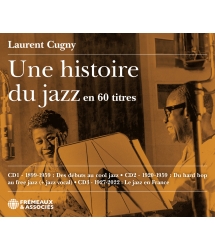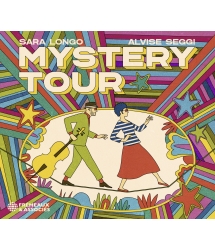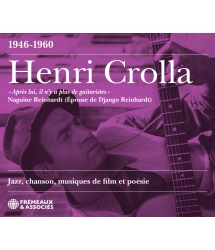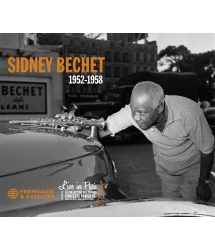- Our Catalog
- Philosophy
- Philosophers of the 20th century and today
- History of Philosophy (PUF)
- Counter-History and Brief Encyclopedia by Michel Onfray
- The philosophical work explained by Luc Ferry
- Ancient thought
- Thinkers of yesterday as seen by the philosophers of today
- Historical philosophical texts interpreted by great actors
- History
- Books (in French)
- Social science
- Historical words
- Audiobooks & Literature
- Our Catalog
- Jazz
- Blues
- Rock - Country - Cajun
- French song
- World music
- Africa
- France
- Québec / Canada
- Hawaï
- West Indies
- Caribbean
- Cuba & Afro-cubain
- Mexico
- South America
- Tango
- Brazil
- Tzigane / Gypsy
- Fado / Portugal
- Flamenco / Spain
- Yiddish / Israel
- China
- Tibet / Nepal
- Asia
- Indian Ocean / Madagascar
- Japan
- Indonesia
- Oceania
- India
- Bangladesh
- USSR / Communist songs
- World music / Miscellaneous
- Classical music
- Composers - Movie Soundtracks
- Sounds of nature
- Our Catalog
- Youth
- Philosophy
- News
- How to order ?
- Receive the catalog
- Manifesto
- Dictionnary











- Our Catalog
- Philosophy
- Philosophers of the 20th century and today
- History of Philosophy (PUF)
- Counter-History and Brief Encyclopedia by Michel Onfray
- The philosophical work explained by Luc Ferry
- Ancient thought
- Thinkers of yesterday as seen by the philosophers of today
- Historical philosophical texts interpreted by great actors
- History
- Books (in French)
- Social science
- Historical words
- Audiobooks & Literature
- Our Catalog
- Jazz
- Blues
- Rock - Country - Cajun
- French song
- World music
- Africa
- France
- Québec / Canada
- Hawaï
- West Indies
- Caribbean
- Cuba & Afro-cubain
- Mexico
- South America
- Tango
- Brazil
- Tzigane / Gypsy
- Fado / Portugal
- Flamenco / Spain
- Yiddish / Israel
- China
- Tibet / Nepal
- Asia
- Indian Ocean / Madagascar
- Japan
- Indonesia
- Oceania
- India
- Bangladesh
- USSR / Communist songs
- World music / Miscellaneous
- Classical music
- Composers - Movie Soundtracks
- Sounds of nature
- Our Catalog
- Youth
- Philosophy
- News
- How to order ?
- Receive the catalog
- Manifesto
- Dictionnary
BABIK REINHARDT - ROMANE - FLORIN NICULESCU - GILLES NATUREL - PHILIPPE DOUDOU CUILLERIER
Ref.: FA542
Label : Frémeaux & Associés
Total duration of the pack : 50 minutes
Nbre. CD : 1
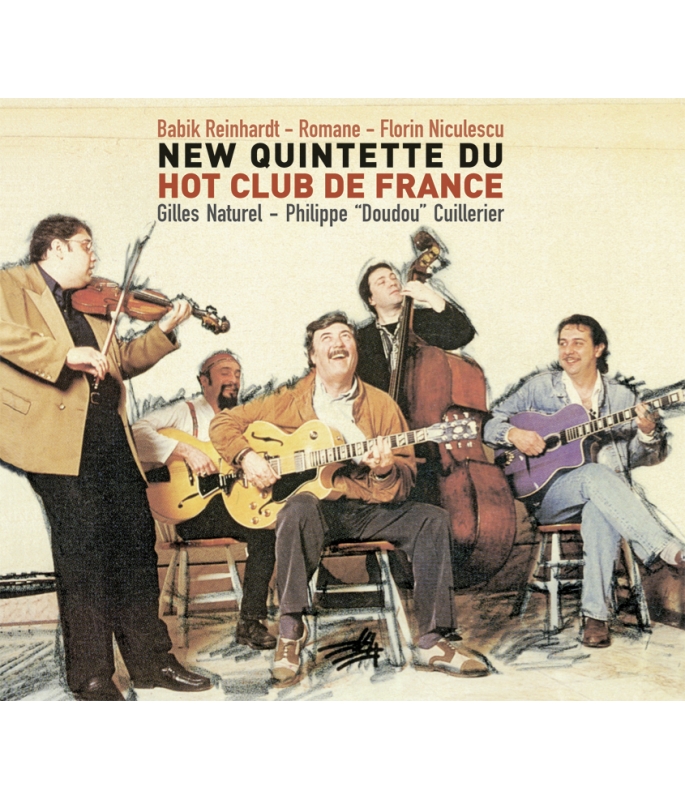
BABIK REINHARDT - ROMANE - FLORIN NICULESCU - GILLES NATUREL - PHILIPPE DOUDOU CUILLERIER
BABIK REINHARDT - ROMANE - FLORIN NICULESCU - GILLES NATUREL - PHILIPPE DOUDOU CUILLERIER
Babik Reinhardt’s reunion with Romane, together with the irresistible talent of new-arrival Florin Niculescu on violin, made the New Quintette du Hot Club de France a genuine reference in French jazz. Their record, polished in Didier Lockwood’s studio, was more than a tribute or a reference to the past: fifty years on, it brought right up to date the heritage that had given birth to their art. Long before the Gypsy Swing phenomenon, Babik Reinhardt, the son of Django, and Romane, one of the greatest disciples of the jazz guitar Maestro, created the New Quintette du Hot-Club de France; they also created a resolutely modern approach which stamped the pages of contemporary jazz with the heritage of the Master. Benjamin GOLDENSTEIN & Patrick FRÉMEAUX
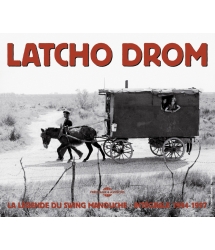
INTEGRALE 1994-1997
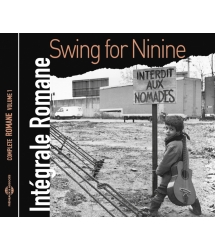
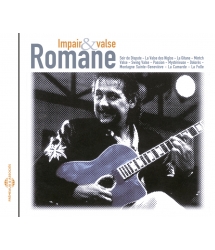
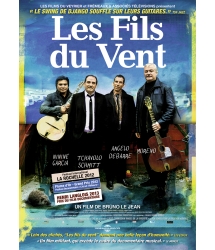
ANGELO DEBARRE, MORENO, NININE GARCIA ET TCHAVOLO...




-
PisteTitleMain artistAutorDurationRegistered in
-
1Minor SwingBabik Reinhardt, Romane, Florin Niculescu, Gilles Naturel, Philippe Doudou CuillerierDjango Reinhardt00:02:482010
-
2New For MeBabik Reinhardt, Romane, Florin Niculescu, Gilles Naturel, Philippe Doudou CuillerierRomane00:04:472010
-
3Tribute To MingusBabik Reinhardt, Romane, Florin Niculescu, Gilles Naturel, Philippe Doudou CuillerierBabik Reinhardt00:03:572010
-
4MicroBabik Reinhardt, Romane, Florin Niculescu, Gilles Naturel, Philippe Doudou CuillerierDjango Reinhardt00:04:092010
-
5Mélodie Pour StephaneBabik Reinhardt, Romane, Florin Niculescu, Gilles Naturel, Philippe Doudou CuillerierRomane00:04:022010
-
6Valse SentimentaleBabik Reinhardt, Romane, Florin Niculescu, Gilles Naturel, Philippe Doudou CuillerierFlorin Niculescu00:03:292010
-
7NuagesBabik Reinhardt, Romane, Florin Niculescu, Gilles Naturel, Philippe Doudou CuillerierDjango Reinhardt00:03:502010
-
8CheyenneBabik Reinhardt, Romane, Florin Niculescu, Gilles Naturel, Philippe Doudou CuillerierBabik Reinhardt00:05:152010
-
9A La LégèreBabik Reinhardt, Romane, Florin Niculescu, Gilles Naturel, Philippe Doudou CuillerierFlorin Niculescu00:03:542010
-
10CorailBabik Reinhardt, Romane, Florin Niculescu, Gilles Naturel, Philippe Doudou CuillerierRomane00:04:172010
-
11PrétexteBabik Reinhardt, Romane, Florin Niculescu, Gilles Naturel, Philippe Doudou CuillerierBabik Reinhardt00:05:192010
-
12BellevilleBabik Reinhardt, Romane, Florin Niculescu, Gilles Naturel, Philippe Doudou CuillerierDjango Reinhardt00:04:372010
new quintette du hot club de france
Babik Reinhardt - Romane - Florin Niculescu
new quintette du hot club de france
Gilles Naturel - Philippe “Doudou” Cuillerier
1. Minor Swing (Django Reinhardt- Stéphane Grappelli) 2’48
2. New for Me (Romane) 4’46
3. Tribute to Mingus (Babik Reinhardt) 3’58
4. Micro (Django Reinhardt) 4’09
5. Mélodie pour Stéphane (Romane) (violons : F. Niculescu & D. Lockwood) 4’02
6. Valse sentimentale (Florin Niculescu) 3’29
7. Nuages (Django Reinhardt) 3’50
8. Cheyenne (Babik Reinhardt) 5’15
9. A la légère (Florin Niculescu) 3’57
10. Corail (Romane) 4’17
11. Prétexte (Babik Reinhardt) 5’19
12. Belleville (Django Reinhardt) 4’37
Babik Reinhardt* : Guitare sur canal gauche (chorus)
Romane : Guitare sur canal droit (chorus)
Philippe “Doudou” Cuillerier : Guitare rythmique
Florin Niculescu : Violon
Didier Lockwood** : Violon dans “Mélodie pour Stéphane”
Gilles Naturel : Contrebasse
* Avec l’aimable autorisation de RDC Records
** Avec l’aimable autorisation de Dreyfus Jazz
Romane joue sur Guitare Maurice Dupont et ampli AER Babik Reinhardt joue sur guitare Gibson
Enregistré en Juillet 1998 au Studio de la Forêt – Didier Lockwood Prise de son & mix : Didier Lockwood
Production : Babik Reinhardt, Romane, Iris Music et Ar(t)mada
Album dédié par les producteurs à la mémoire de Babik Reinhardt.
Pour la nouvelle parution chez Frémeaux & Associés : Remerciements à Boris Kurts, Joël Leibovitz, Jean-Baptiste Ambroggiani Hommage à Franck Hagège et Babik Reinhardt
(P) 1998 Iris Music 2011 Frémeaux & Associés
© 2011 Groupe Frémeaux Colombini SAS
C’est Babik Reinhardt qui a eu l’idée du New Quintette du Hot club de France. Il faut dire que depuis pas mal d’années, on pressait le fils de Django de recréer le mythique quintette : “j’ai attendu qu’on ne me le demande plus pour le faire ; je ne voulais pas travailler sous la pression, refaire la musique qui avait été jouée par mon père. J’ai toujours joué ma musique (...)*.” Si au milieu des années 1990, ce qu’il est convenu d’appeler swing manouche est sorti de l’audience confidentielle qui fut la sienne pendant des années, on est encore loin de la djangomania à venir. Parmi les héritiers de Django, Romane (qui a alors 4 disques à son actif) est l’un de rares à avoir compris que si l’illustre manouche avait montré la direction, chacun devait, avec ses moyens, trouver une voie personnelle. Remarquable compositeur, Romane écrit ses propres mélodies sans trahir l’esthétique dans laquelle il s’exprime, prolongeant et renouvelant le style tout en y imprimant sa marque. C’est sans doute ce que Babik a apprécié chez ce gadjo, lui-même s’étant toujours refusé à faire le perroquet ; et puis, à cette époque, ils habitent tous deux à Samois-sur-Seine, cela les rapproche et ils aiment jouer ensemble. Passionné par l’école américaine de guitare (Jimmy Raney, Tal Farlow...) Babik a tout de suite opté pour la guitare électrique, faisant ses classes avec René Mailhes et Laro Sollero. Babik est un romantique qui exprime par le son (toucher sensuel, phrasé aérien combinant lyrisme et sens mélodique) une musique qui sort du cœur. Dans son jeu reconnaissable dès les premières mesures, spontanéité et émotion priment sur l’intellect. Sa Gibson amplifiée très près des cordes et du bois épouse parfaitement l’amplification électro-acoustique de la guitare de Romane, dont les interventions inspirées conjuguent musicalité et sens de la construction du chorus. Babik et Romane ont eu l’idée judicieuse de faire venir Florin Niculescu, immense violoniste qui n’est alors pas très connu. S’il a bien sûr écouté Stéphane Grappelli, le roumain possède une façon bien à lui d’étinceler la musique sur tous les tempos, combinant dans son phrasé incisif virtuosité, swing et élégance. Si le nouveau quintette se présente avec la même formule instrumentale que l’ancien (trois guitares, un violon, une contrebasse), il se veut moderne ; il s’agit de s’abreuver à la source sans s’y noyer.
On n’a plus un guitariste soliste mais deux ; Ça change pas mal de choses au niveau du rôle et du son des guitares. Doudou Cuillerier assurant seul l’accompagnement à la guitare, on attend de lui l’équivalent d’un jeu de balais. Il s’agit de retrouver le groove du quintette original mais en l’actualisant, avec davantage d’interaction et d’harmonie ; d’où le choix capital de Gilles Naturel à la contrebasse ; la pulsation et la stabilité assurées par cette rythmique qui tourne, permet aux trois solistes de s’exprimer avec davantage de liberté et de combinaisons dans une esthétique moins manouche et plus jazz : dialogue, questions-réponses, placements d’accents, superposition des deux guitares avec de subtiles variations mélodiques (cf. sur “Valse sentimentale”)... La durée des morceaux n’excédant pas quatre ou cinq minutes, concision et équilibre sont au rendez-vous. Le groupe a su trouver la voie étroite entre respect pour la tradition et engagement dans la modernité ; tout d’abord en insufflant à la relecture de quatre compositions de Django des influences puisées à d’autres sources (cf. le chorus de Babik sur “Micro”), mais aussi par l’apport de huit compositions originales ambitieuses n’oubliant jamais la belle mélodie, contribuant avec intelligence et humilité à l’évolution de ce style musical : trois de Romane dont un hommage très sensible à Stéphane Grappelli, sur lequel Didier Lockwood, invité, mêle avec toute sa classe son violon à celui de Florin, trois de Babik (cf. le très convaincant “Tribute to Mingus”) et deux de Florin (cf. la jolie “Valse sentimentale” où le lyrisme du violon alterne avec la dentelle des guitares). Treize ans après sa parution, ce disque plein de fraicheur (on sent les musiciens heureux et détendus) n’a pas pris une ride.
Francis Couvreux chroniqueur pour www.djangostation.com
* Jazzman n°38, Juillet-août 1998
© 2011 FRÉMEAUX & ASSOCIÉS
english notes
The name was Babik Reinhardt’s idea. In fairness, people had been pressing Django’s son for years, urging him to revive the legendary «Quintette du Hot Club de France». «I waited until people stopped asking, and then did it. I didn’t want to work under pressure, or play the same music as my father. I’ve always played my music...*» In the mid-Nineties, the music they usually called «Gypsy Swing» came out of the confidential circle to which it had been restricted for decades. But it was still a long way from the Django-mania to come. Of all Django’s heirs, Romane was one of the rare musicians to understand that, if the famous gypsy-guitarist had indeed shown the way, it was now up to everyone to find a personal approach. Romane, a remarkable composer, wrote his own melodies without betraying the aesthetic that provided his expression; he extended and renewed that aesthetic, and left his own imprint. That, no doubt, is what Babik appreciated in Romane the gadjo – the gypsy-term used to refer to non-gypsies –, as Babik, too, had always refused to be a mimic. In those days, the two of them lived in Samois-sur-Seine; they were neighbours, and they played together. Babik had a passion for the American guitar-school – Jimmy Raney, Tal Farlow – and he learned the guitar with René Mailhes and Laro Sollero. Babik is also a Romantic; he expresses his feelings in sound, with a sensual touch and airy phrasing that combine lyricism with his feeling for melody. You can recognise his playing in the very first bars: spontaneity and emotion prevail over intellect. His Gibson is amplified close to the strings and body, perfectly matching the electro-acoustic amplification of Romane, whose inspired interventions combine musicality with his «feel» for the construction of a chorus. Babik and Romane had an idea, and it turned out to be extremely judicious: they brought in Florin Niculescu, an immense violinist (born in Bucharest) who was then still an unknown. He’d listened to Stéphane Grappelli of course, but he had his own way of making music sparkle whatever the tempo, and his incisive, virtuosic phrasing swung with elegance. Even if the New Quintette used the same instrumental format as the original – three guitars, a violin and a contrabass – its aim was resolutely modern: «drink at the well, but don’t drown in it.» There was no longer one soloist playing guitar, but two; it makes a great difference to the role and sound of the instruments. With Doudou Cuillerier the only accompanying guitarist, what was expected from him was the equivalent of «brushwork». They would reproduce the groove of the original Quintette, but bring it right up to date at the same time, with more interaction and harmony; hence the capital choice of bassist Gilles Naturel. The stable pulse provided by this highly-efficient rhythm-section allowed the three soloists much more freedom in the way they interacted, and the approach was less «gypsy», more «jazz»: dialogue, call-and-response, accentuation, two-guitar-overlays with subtle melodic variations (cf. Valse sentimentale)... The group found the narrow road separating respect for tradition and commitment to modernity: first of all, by breathing influences drawn from other sources into a rereading of four Django compositions (note Babik’s chorus on Micro); but they also brought in eight, ambitious, original tunes whose melodies are beautiful, and these contributed to make the music evolve with intelligence and discretion: three by Romane, including an extremely sensitive tribute to Stéphane Grappelli (guest artist Didier Lockwood adds the class of his violin to that of Florin Niculescu); three titles by Babik (cf. the highly convincing Tribute to Mingus), and two pieces written by Florin (cf. the pretty Valse Sentimentale). Thirteen years after its original release, the freshness of this recording hasn’t aged a bit.
Adapted by Martin Davies, from the French text of Francis Couvreux, contributor to www.djangostation.com
* Jazzman n°38, July-August 1998
© 2011 FRÉMEAUX & ASSOCIÉS
CD Babik Reinhardt - Romane - Florin Niculescu new quintette du hot club de france © Frémeaux & Associés (frémeaux, frémaux, frémau, frémaud, frémault, frémo, frémont, fermeaux, fremeaux, fremaux, fremau, fremaud, fremault, fremo, fremont, CD audio, 78 tours, disques anciens, CD à acheter, écouter des vieux enregistrements, albums, rééditions, anthologies ou intégrales sont disponibles sous forme de CD et par téléchargement.)
